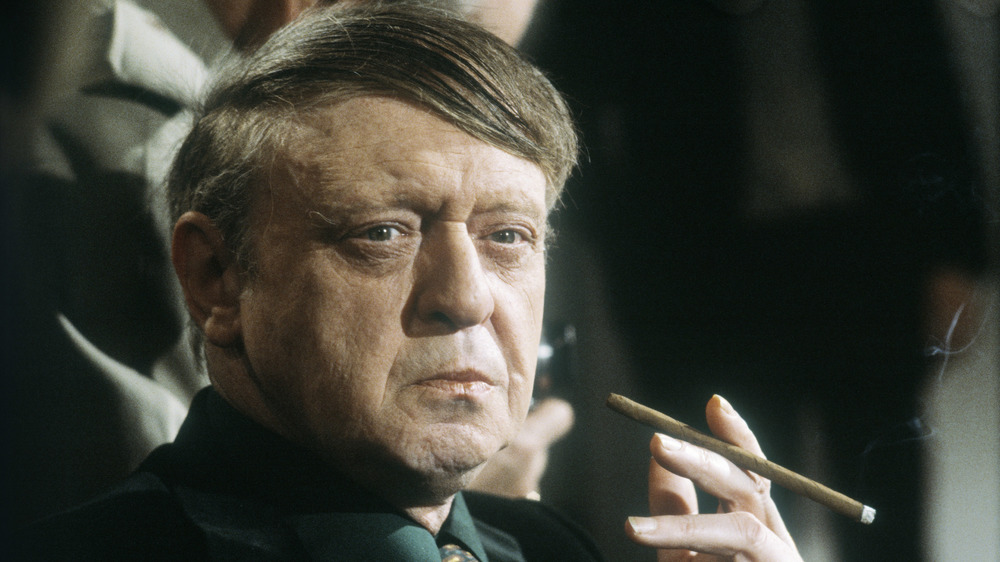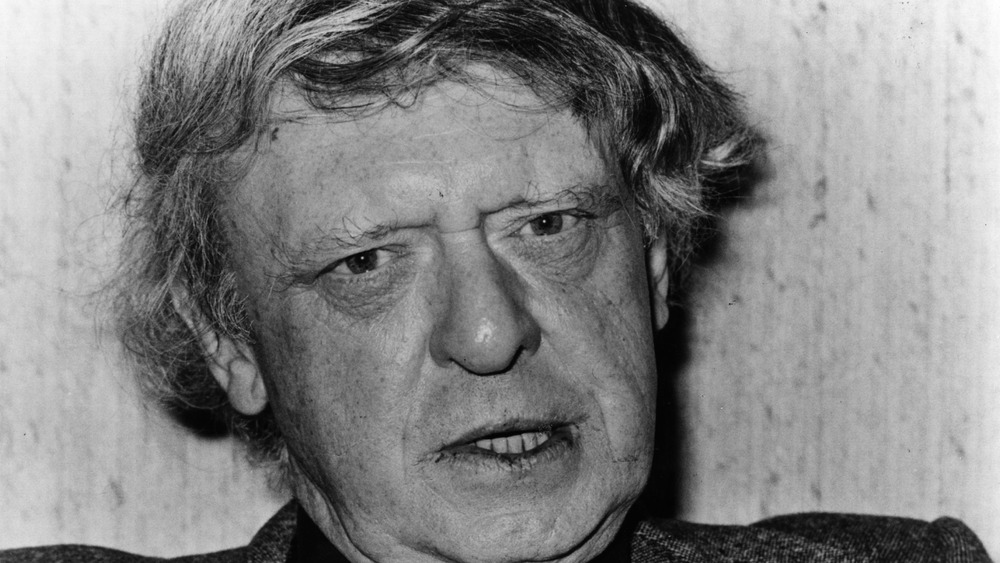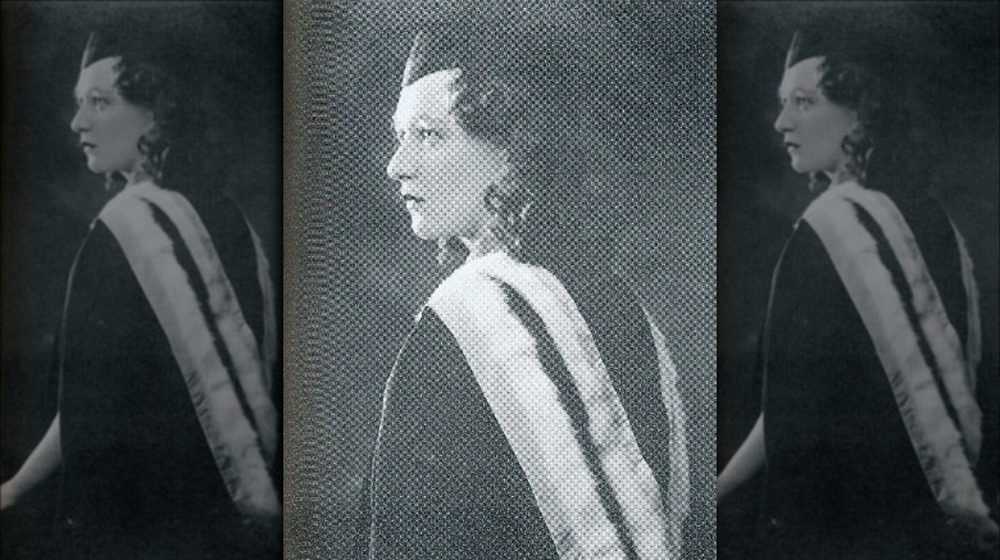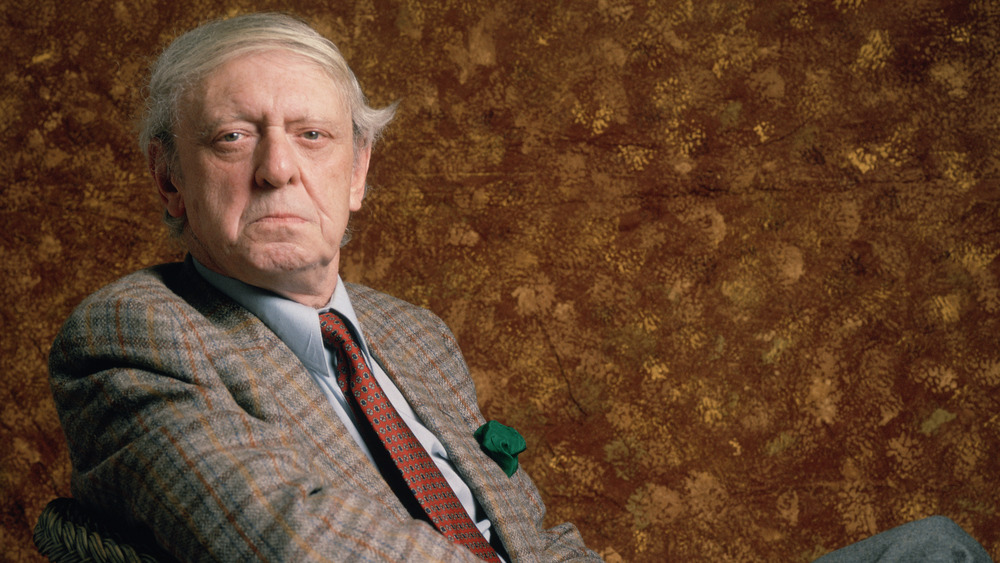The Tragic Life Story Of A Clockwork Orange Author Anthony Burgess
Rarely has such breadth of talent been ignored by the general public in favor of one famous work produced during an artist's long and varied creative life. Anthony Burgess, born February 25, 1917, in Manchester, England, is known to many today only as the writer of A Clockwork Orange, the 1962 novel that inspired the infinitely more famous (or, perhaps, notorious) movie of the same name. (The film was released and subsequently removed from circulation in the UK by director Stanley Kubrick in 1971.)
But the life work of Burgess is infinitely greater than this one slim, admittedly great, novel. Burgess was 39 when he published his first novel, Time For A Tiger (1956), based on his experiences during the decolonization of the Malay Peninsula. Despite the relatively late start, Burgess was nevertheless hugely prolific, writing dozens of novels before his death in 1993. The sprawling panorama of Earthly Powers (1980) was shortlisted for that year's Booker Prize in Britain, with many critics now agreeing that the novel deserved to win. Another hugely popular work was The Enderby Quartet, a series of four comic novels tracing the life of a fictional poet who wants nothing more than to be left in peace to write poems on the toilet.
Burgess wasn't only a novelist; he was also a critic, journalist, playwright and a musician: "I wish people would think of me as a musician who writes novels, instead of a novelist who writes music on the side," as he was quoted by the New York Times Book Review.
A tragic childhood
The neglect of Burgess's vast body of work is far from being the major tragedy of his life. Compared to some of the events of his personal life, it pales into insignificance.
In later life, Anthony Burgess would become a mainstay of British television, lending his erudite presence to a number of high-end academic talk shows. His educated manner, however, hid a difficult childhood, comparatively deprived in comparison to many of his literary contemporaries. The New World Encyclopedia goes as far as to describe his childhood as "Dickensian," though Burgess himself described his upbringing as "lower middle class."
Burgess was born toward the end of World War I and came of age during the Great Depression. His father, Joseph, was a jack-of-all-trades who had served in the military, played music professionally, but made most his money as a shopkeeper. His mother, Elizabeth, was a part-time actress and dancer. Tragedy struck the family when Burgess was just a year old, when both his mother and elder sister Muriel died in the 1918 flu pandemic. According to his biographer, Roger Lewis, Burgess believed himself to be resented (Burgess's "favorite word") by his father, for surviving the pandemic instead of his mother and sister. Burgess was sent to be raised by his maternal aunt. As a result, Burgess had a solitary childhood, characterized by anger and a sense of loss. Nevertheless, Burgess taught himself how to play both the violin and the piano.
The traumatic life of Burgess's first wife, Lynne
Burgess's father remarried, to pub landlady Margaret Dwyer, in 1922, and Burgess returned to live with his father and new stepmother. His father died in 1938, leaving his son no inheritance.
Burgess met his first wife, Lynne, while studying English language and literature at the Victoria University of Manchester between 1937 and 1940. The pair were married on January 22, 1942, according to the Oxford DNB, while Burgess was serving in the British military. Burgess described his wife as being "almost philosophically unfaithful. She ... established the principle that to sleep with anybody was in order ... She would sleep with anyone." Many critics and biographers have sought to draw an oedipal parallel between Burgess's motherlessness and his acceptance of his wife's infidelities. Nevertheless, the pair remained together, and Lynne became pregnant, but a horrific trauma would come to cast a dark shadow over the Burgess marriage for the next two decades.
In 1944, while Anthony was away in the military, Lynne was brutally attacked by a group of Americans, possibly deserters, during a London wartime blackout, according to the Independent. She was assaulted and robbed, with her assailants trying to break her finger to take her wedding ring. Lynne later suffered a miscarriage.
Anthony Burgess's brutal misdiagnosis
Some believe that the trauma of the incident led both Lynne and Anthony into a spiral of alcoholism that would ultimately lead to Lynne's untimely death, age 47, from liver cirrhosis in 1968, according to the New World Encyclopedia.
One of the most notorious incidents of Anthony Burgess's long life concerns his own health, and has been identified by many biographers as the catalyst for his prolific output throughout the majority of his 40-year career as a novelist. According to the New World Encyclopedia, in 1958 Burgess took up a teaching position in Brunei, Borneo, an experience that would later be immortalized in his 1961 novel Devil of a State. Burgess claims that he was teaching in a Brunei classroom when he suddenly collapsed: the symptom, he was told by doctors, of an inoperable brain tumor. Burgess claims he was given just a year to live.
As a result, Burgess, having been repatriated to England at the Sultan of Brunei's expense, took up writing at great speed, with the goal of providing a literary nest egg for his apparently soon-to-be widow. According to the Department of English and Literature at Fu Jen University, Burgess wrote five novels in quick succession, including A Clockwork Orange, and seemingly conjured up a literary career out of nowhere in the process. As the years rolled on, it soon became obvious that Burgess was not as sick as he first believed, but his prolific work rate continued for three decades more.



